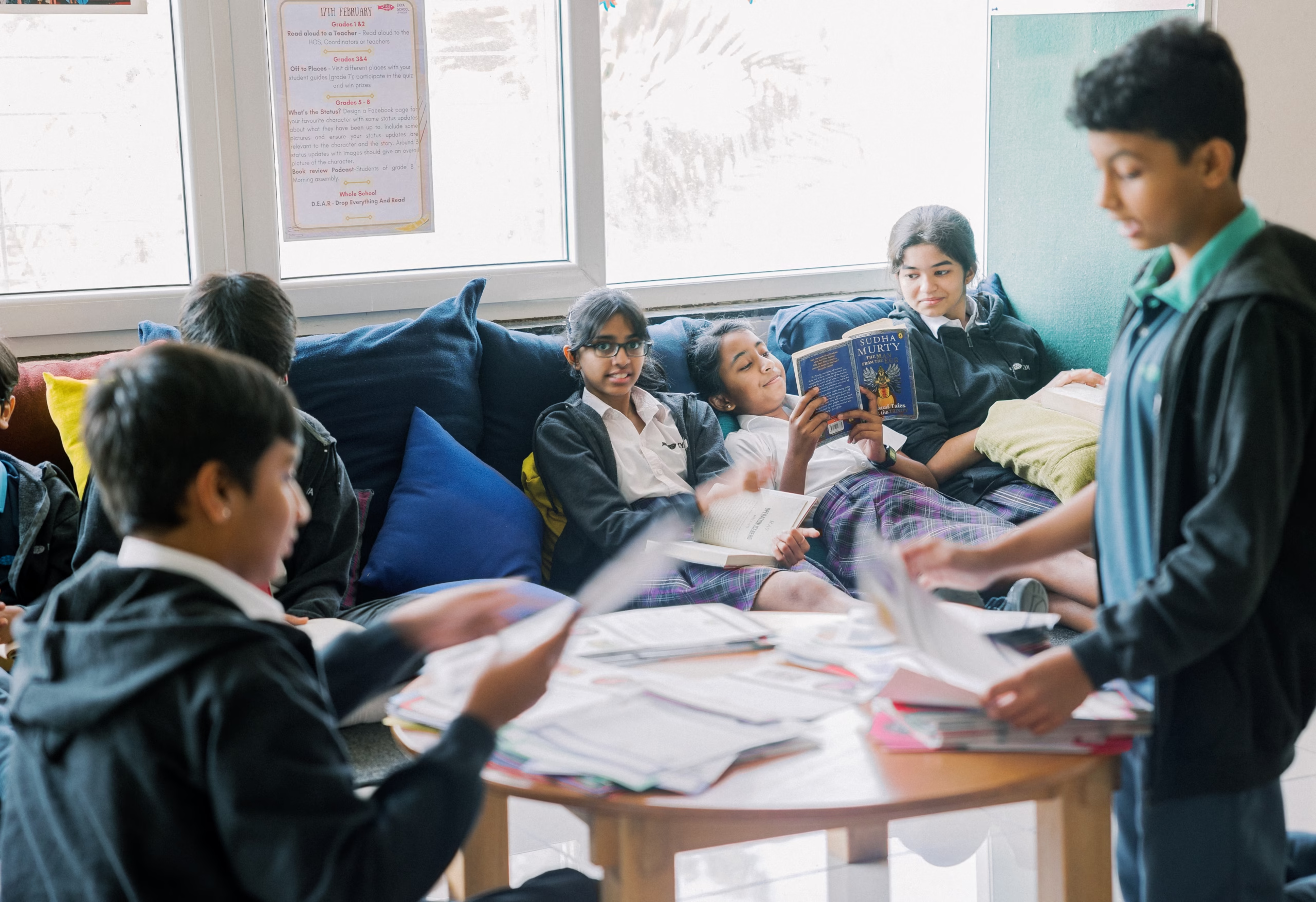“Two heads are better than one.” It’s a saying we’ve all heard, but have you ever stopped to think about why it’s true? Well, at least in the context of learning, it does hold true. Because learning isn’t just about acquiring knowledge—it’s also about sharing, collaborating, and growing together.
In education, this concept takes the form of peer learning, a powerful tool for growth that goes beyond textbooks and tests. When students learn from and with each other, they unlock new perspectives, develop critical thinking, and build essential life skills. At Ekya Nava, ranked among the top international schools in Bangalore, peer learning is central to our teaching philosophy, creating an environment where students don’t just compete—they collaborate.
So, what makes peer learning so impactful, and how does Ekya Nava bring it to life in the classroom? Let’s dive in.

What is Peer Learning?
At its core, peer learning is about students learning from one another. It’s not just about sharing answers but engaging in meaningful conversations, asking questions, and solving problems together.
Think of it as a two-way street:
- A student teaching a concept reinforces their own understanding.
- A student learning from a peer gains a fresh perspective and often grasps the subject better through relatable explanations.
But peer learning isn’t just about academics. It builds soft skills like communication, empathy, and teamwork—qualities that are essential for life beyond the classroom.
Why Peer Learning Matters in Modern Education
In today’s interconnected world, collaboration is key. Here’s why peer learning holds such value:
- Multiple Perspectives:
Every student sees the world through a unique lens. By interacting with peers, they gain new insights, challenge their assumptions, and broaden their horizons.
- Confidence Booster:
Students often feel more comfortable asking questions or clarifying doubts with a peer than with a teacher. This fosters a safe space for learning and builds self-confidence.
- Real-World Preparation:
The ability to collaborate, share ideas, and problem-solve as a team is a skill students will carry into the workplace and beyond.
- Empathy and Social Skills:
Peer learning isn’t just about academics—it’s about understanding different perspectives, resolving conflicts, and building meaningful relationships.
The Benefits of Peer Learning at Ekya Nava
What do students gain from this collaborative approach? Let’s hear it from them:
- “I learn better when my friends explain the concepts to me. It feels like we’re solving a puzzle together.”
- “Working with my classmates on projects has taught me how to listen, share ideas, and compromise. It’s fun, too!”
Beyond the classroom, these experiences prepare students to thrive in group settings—whether it’s in college, the workplace, or life in general.
How Does Ekya Nava Excel at Peer Learning?
As one of the top international schools in Bangalore, Ekya Nava is committed to holistic education. Here’s what sets us apart:
- A Collaborative Culture: We believe that education isn’t just about individual achievement but collective growth. Our students learn to celebrate each other’s successes as much as their own.
- Global Curriculum: With its focus on inquiry-based learning and real-world applications, our curriculum encourages teamwork and critical thinking.
- Supportive Educators: Educators at Ekya Nava guide students to work together effectively, ensuring that every voice is heard and valued.
How Parents Can Encourage Peer Learning at Home
Peer learning doesn’t have to stop at school. Here are some ways parents can support this approach at home:
- Study Groups: Encourage your child to form study groups with friends where they can help each other with homework or prepare for exams.
- Collaborative Activities: Organise group activities like puzzles, board games, or team-based projects that require kids to work together.
- Open Conversations: Ask your child about their group experiences at school—what they learned, how they contributed, and what challenges they faced.
In a world that thrives on connection and collaboration, peer learning is more than just an educational tool—it’s a life skill. At Ekya Nava, we’re proud to nurture this approach, creating a community of learners who inspire, challenge, and support one another.
By fostering collaboration, we’re not just preparing students for academic success. We’re equipping them with the skills, empathy, and confidence they need to thrive in a global society.
